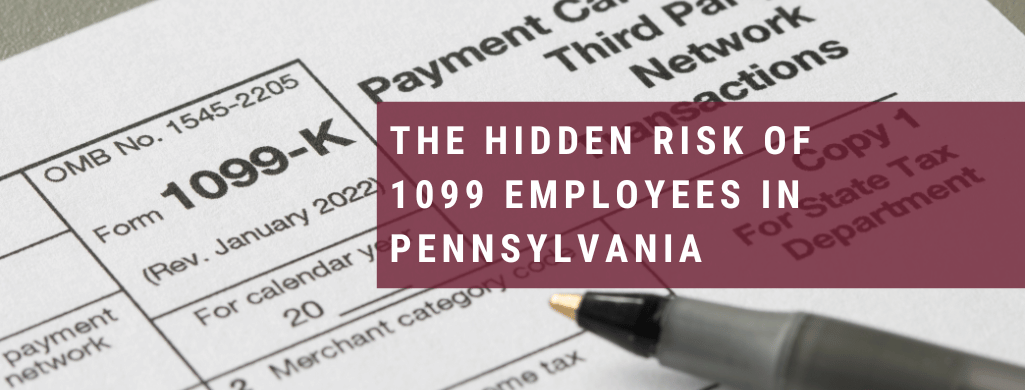
Many business owners in Pennsylvania utilize a 1099 setup for new “employees”. This is common for small businesses aiming to grow but unable to afford health insurance and benefits to take on a fulltime employee. Many construction businesses and landscapers will take on temporary employees as 1099 contractors.
Employers do not know all the hidden risks this opens their business to. In Pennsylvania, the laws are precise regarding which type of employees require workman’s comp.
How Does The 1099 Setup Operate?
The 1099 employment arrangement is distinguished by its economical and flexible nature. Being self-employed, independent contractors, also known as 1099 workers, are in charge of their own taxes, insurance, and other work-related costs. This kind of arrangement which permits project-specific hiring without the commitment of long-term employment.
Does Pennsylvania Require Workman Comp For 1099 Employees
No, Pennsylvania does not require workman’s comp for 1099 contractors. The only thing is, the 1099 contractors must meet the definition of a 1099 contractor, not a 1099 employee. There are specific laws and details that breakdown what a 1099 contractor is considered vs. an employee.
The Risk Of A 1099 “Employee”
The potential legal requirement to provide workers’ compensation coverage is a significant hidden risk when hiring 1099 workers in the construction industry. In Pennsylvania, whether or not a worker is classified as an independent contractor is not exclusively based on the terms of the agreement or the use of a 1099 form, even though independent contractors are typically in charge of their own insurance. Rather, the type of working relationship and the extent of employer control are also important factors.
If you have a 1099 contractor that by legal definition is considered an employee, you must legally provide workmans compensation for these employees.
What Differentiates An Employee & A 1099 Contractor?
The employer’s level of control over the employee is the crucial element. An employee may be considered more closely related to their employer than an independent contractor if they have significant control over the work, set the working hours, supply tools and equipment, and oversee the job’s specifics.
There are a few things that legally separates a 1099 contractor from a regular employee.
- Does the employer have the authority or control over what employees do and how they perform their jobs? Specifically when and where they perform the job.
- Does the business side of an employee’s job fall under the control of the company? These cover things like the worker’s payment schedule, reimbursement for incurred costs, and who supplies the equipment and supplies.
- Do any formal contracts or employee benefits like paid time off, insurance, or a pension plan?
- Will the collaboration last, and is the work a vital component of the company?
Consequences Of A 1099 Workman’s Comp Conflict
When employers in the construction industry fail to provide workers’ compensation coverage to individuals who are incorrectly classified as independent contractors, there can be dire consequences. A 1099 worker may submit a claim for workers’ compensation benefits in the event of an injury sustained on the job, claiming they ought to be considered an employee with that right. Then, if they don’t comply, employers might be subject to fines and other legal consequences.
Protecting Your Business From Liability
Employers in the construction industry that use 1099 workers need to carefully evaluate the nature of the work relationship in order to reduce these hidden risks. Establishing a legitimate independent contractor relationship can be aided by providing clear documentation of the status of the independent contractor, such as contractual agreements and proof of the employer’s minimal control.
Construction Businesses need to be aware of how the law is changing with regard to worker classification. Pennsylvania’s workers’ compensation laws can be complied with by routinely examining and updating contracts, as well as by getting legal counsel when necessary.
Contact Strickler Insurance To Make Sure You Are Protected
At Strickler Insurance, we seek to keep our customers informed, covered and protected. We can discuss with you all the potential ways workman compensation is needed and necessary for your business as well as ways to navigate the regulations around employment. Contact us today!

